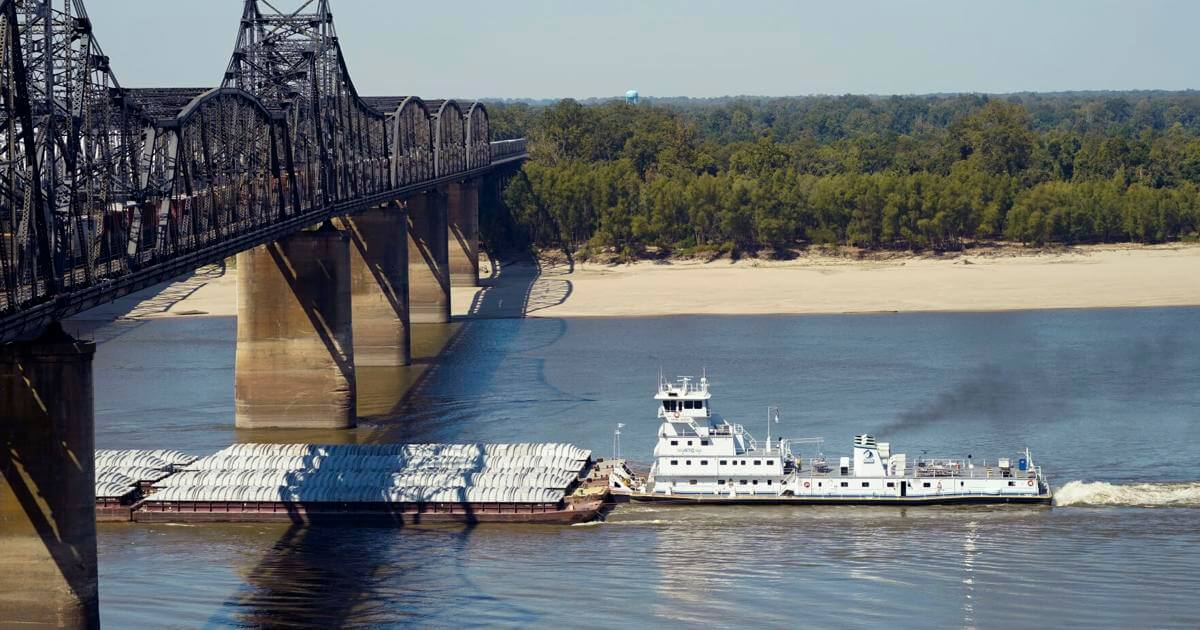Coastal Industry is Still Affected by Mississippi’s Declining Water Level

October 15, 2022
The Mississippi River’s water level is continuing to drop, which has a significant impact on the state’s heartland’s agriculture and business. The depth is getting close to a historically low last witnessed in 1988, which is causing barge traffic to slacken to a standstill. There is little to no relief in the forecast, and the river gauge at Memphis is currently at -8.9 feet, 3 feet less than it was over the last weekend. According to a National Weather Service forecast, the water level at Memphis might reach -10 feet by the end of the month, and the extended forecast anticipates under-precipitation throughout the Mississippi Basin for at least the next 30 days.
The Wall Street Journal was informed by Corps of Engineers official Lisa Parker that “there is no rain in sight.” The rivers have reached their lowest point. With capacity limited and per-ton freight costs reaching unbelievable highs, the shallow water has put loading limitations on the barges that transport soybeans, oil, coal, and other commodities up and down the river. From St. Louis, the tariff heading downward has increased by roughly five times since last October. Because of the daily groundings on the Mississippi’s shifting sandbanks, arrival times for traders are uncertain (and in some recent instances, temporarily shutting or restricting navigation in affected areas). In certain places, traffic is now only moving one direction at a time due to narrowing routes.
The soybean producers who are currently producing their fall crops are directly impacted by this. Siloes are filling up in farming communities along the Lower Mississippi due to a lack of barge transport capacity and the inability of rail and truck transport to handle the increased load. Farmers have often been forced to put off harvesting or storing their own produce, often by piling it on the ground and covering it with plastic.
According to Tennessee farmer John Dodson, “the majority of our stuff travels down the Mississippi River for export.” We’re at a halt if the terminal can’t handle it if the barges can’t get the grain to the ports in New Orleans, so those harvests basically get wasted. According to Tennessee farmer John Dodson, “the majority of our stuff travels across the Mississippi River for export.” “And we’re at a halt, so those crops just sit in the field,” he continued, “if the terminals cannot take it if the barges cannot convey the grain down to the seaport in New Orleans.”
Also Read: Explosives from world war II hinder investigation of a breach in the Nord stream pipeline
Click here to join our Telegram chanel
You will get information, news, and support related to Merchant Navy.
